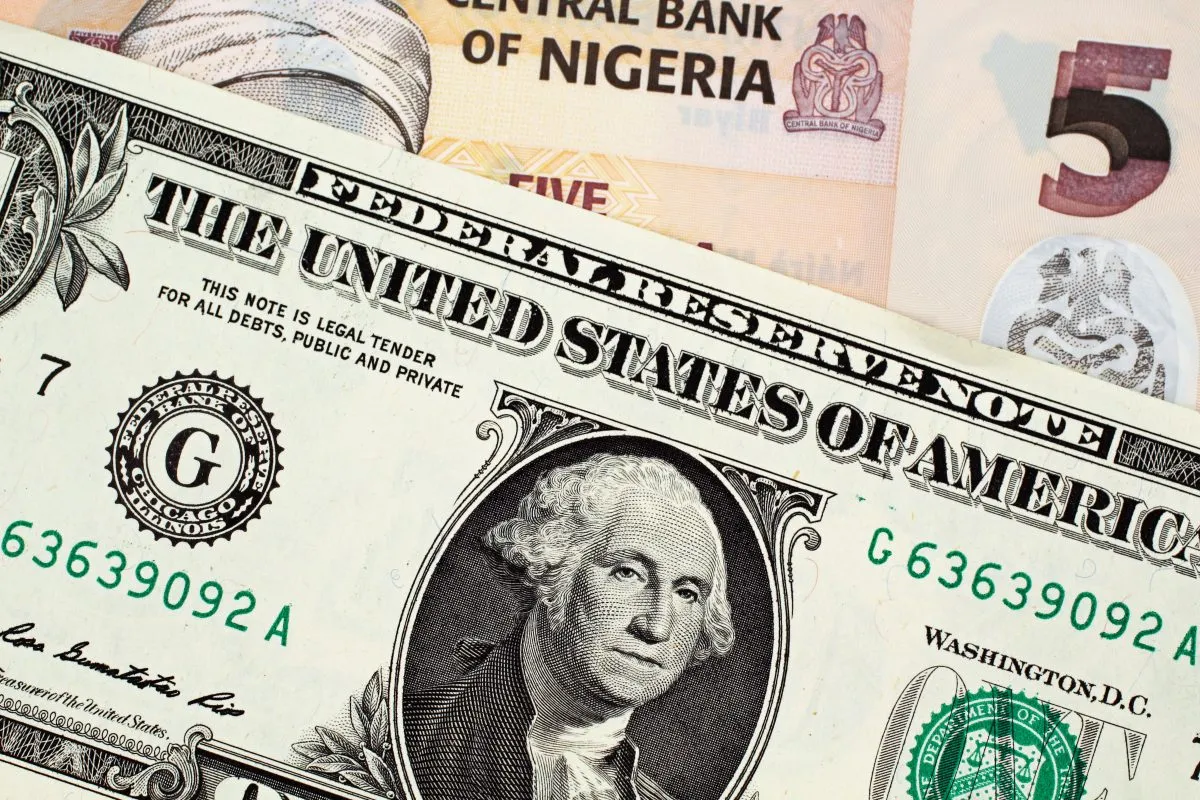
Obinna Chisom, a Lagos-based entrepreneur, was in dire need of a loan to complete an ongoing housing project. He was lucky that a family friend, who in the first quarter received a huge payoff from a top oil company, came to his rescue by offering him soft loans at zero interest.
The creditor, who was paid off by Addax Petroleum Limited, following a take-over deal with the Nigerian National Petroleum Company (NNPC) Ltd – the sector’s government-backed regulator, gave Chisom a $10,000 loan, payable before year’s end.
But the loan came with a caveat. It must be repaid in dollars, not naira. Many individuals, businesses and banks no longer have confidence in the naira – the domestic currency which lost over 20% value in 2022, and is projected to record 30% depreciation this year.
The naira exchanges at N750/$1 at the parallel market, and N460/$1 at the official market, creating a N290 ($0.63) premium between both rates.
Dollar crunch, triggered by a sharp drop in dollar revenues, has forced the CBN to ration the dollar supply to key sectors of the economy – at the expense of local businesses.
“I had no option but to accept repaying the loan in the same currency it came: US dollars. I understand the issue around paying back in naira because of the currency risk, which is real,” Chisom said.
Other service providers like private jet charters insist on dollar payments. Some workers, such as in the oil and telecoms sectors, demand 50% of their salaries in dollars and the other 50% in naira. Rents for houses and business premises in several parts of Lagos, Abuja and Port Harcourt are priced in dollars.
Chukwuerika Achum, CEO of Falcon Aerospace Ltd, said its three premium services, Vivajets, CharterXE and FlyPJX – designed to ease business jet booking and promote inclusive access – are all priced in dollars.
“The naira depreciation fears in sectors where inputs are in dollars have made us price our services in dollars to hedge against currency risks,” he explained during the services launch in upmarket Ikeja, Lagos in late April.
An economist, Bismarck Rewane, said the naira crisis has increased the cost of aviation fuel (Jet A1) and raised operating costs for airline operators. For instance, the Jet fuel price rose by 60% to $1.70-$1.72 per litre, up from $0.43 per litre in 2021 and $1.08 per litre in 2022. This has increased airfares, triggered lower demand for flights and weighed on revenue.
One fallout from this fixation on dollars is that many manufacturers who are unable to access forex for production are now using local raw materials for their operations and many imported finished goods are now locally fabricated.
At the motor parts market in Mushin in Lagos, motorists now buy locally fabricated window frames, side mirrors, bumpers, brake pads, and even engine oil as prices of imported varieties go out of reach.
Daniel Okafor, managing director, Countryside Automobiles, said some motorists now demand local versions of vehicle parts which are affordable and also durable.
“Dollar scarcity and exchange rate crisis have forced the naira to slide to N750/$1 at the parallel market. With the high cost of imported vehicle parts, customers who cannot afford them now go for locally fabricated versions which are over 40% cheaper than imported versions,” he said.
More depreciation to follow?
The naira faces the risk of further depreciation in 2023 due to the recent decline in foreign capital importation into Nigeria and other activities by people that are depleting dollar reserves in the economy.
Nigeria is expected to struggle to attract foreign capital during the year, unless crude oil and non-oil export earnings are increased.
The National Bureau of Statistics, in its latest report, said capital importation into Nigeria declined 8.5% in Q4 2022.
According to the statistics office, the total capital imported into Nigeria in the period under review was valued at $1.06bn – down from $1.16bn in Q3 2022.
Ike Chioke, managing director / CEO at Afrinvest West Africa Plc, explained that the drop in Nigeria’s oil production and oil theft have reduced dollar earnings and worsened the naira decline.
“As oil production dropped due to oil theft and insecurity, dollar earnings have also dipped. We have seen forex restrictions on the part of the CBN where certain items cannot access dollar at the official window. Importers of such products have moved to the parallel market, where rates have escalated,” he said.
To bridge the dollar supply gap, support local industry and preserve forex, commercial banks have commenced a Bank Verification Number (BVN) watchlist for customers who diverted dollars disbursed for foreign trips to other uses.
The affected customers obtained the Business Travel Allowance (BTA) and Personal Travel Allowance (PTA) for their foreign trips fraudulently, or failed to follow set rules for such transactions.
Findings showed that banks are now publishing names of the defaulting customers on their websites to show their seriousness in the sanctions implementation.
A check on several banks’ websites showed that over 6,000 customers are booked by the lenders on a monthly basis for forex infractions.
The affected customers’ BVNs were also listed alongside their names on what banks described as the PTA/BTA Defaulters’ List.
The banks are also maintaining a list of defaulters, and applying sanctions specified by the CBN, including such defaulters not being allowed to access forex from official windows in the future.
The CBN had called attention to incidents of customers presenting fake documents like expired passports, invalid flight tickets or open tickets that are cancelled after they acquire forex.
Segun Agbaje, group managing director, Guaranty Trust Holding Company Plc, said banks are going the extra miles needed to maintain the integrity of forex allocation to customers and preserve dollar reserves in the economy.
He said banks’ chief compliance officers are now saddled with the responsibility of ensuring only those with genuine documents get access to BTA and PTA.
To reduce forex diversion, commercial banks also commenced card-based dollar disbursements to travellers in need of dollar PTA and BTA. The travellers were previously paid in cash.
While FirstBank customers now use FirstBank Travel Card to access PTA and BTA, Access Bank customers rely on the Access Travel Debit Card and Unity Bank customers use Unity Travel Card, among others.
The banks have equally cut PTA and BTA by 50% from $4,000 to $2,000 and reduced requests to twice in a year, from once in a quarter.
Aside from these steps, international school fees and upkeep requests are to be processed within 120 days from the date of approval.
Banks have also directed that all such applications are processed and disbursed subject to forex availability, proper documentation and provided the account to be debited is sufficiently funded to cover the Form A charge and other processing fees.
However, according to Bismark Rewane, CEO of Financial Derivatives Company Ltd, the naira is expected to depreciate at both the parallel market and Investors’ and Exporters’ Forex Window, owing to CBN’s forex rationing amid demand pressures due to the cash crunch and speculative activities in the forex market.
The disparity between the official exchange rate and the parallel market rate is also likely to contract due to the expected reduction in capital outflow following the hike in interest rates.
“Nigeria’s external reserves depleted consecutively in March. It lost 1.44% ($520m) to close the month at $35.50bn from $36.02bn at the start of the period. The continuous depletion of the external reserves is likely to limit the CBN’s ability to support the naira. This could lead to further depreciation of the naira,” Rewane stated.
Want to continue reading? Subscribe today.
You've read all your free articles for this month! Subscribe now to enjoy full access to our content.
Digital Monthly
£8.00 / month
Receive full unlimited access to our articles, opinions, podcasts and more.
Digital Yearly
£70.00 / year
Our best value offer - save £26 and gain access to all of our digital content for an entire year!
 Sign in with Google
Sign in with Google 



